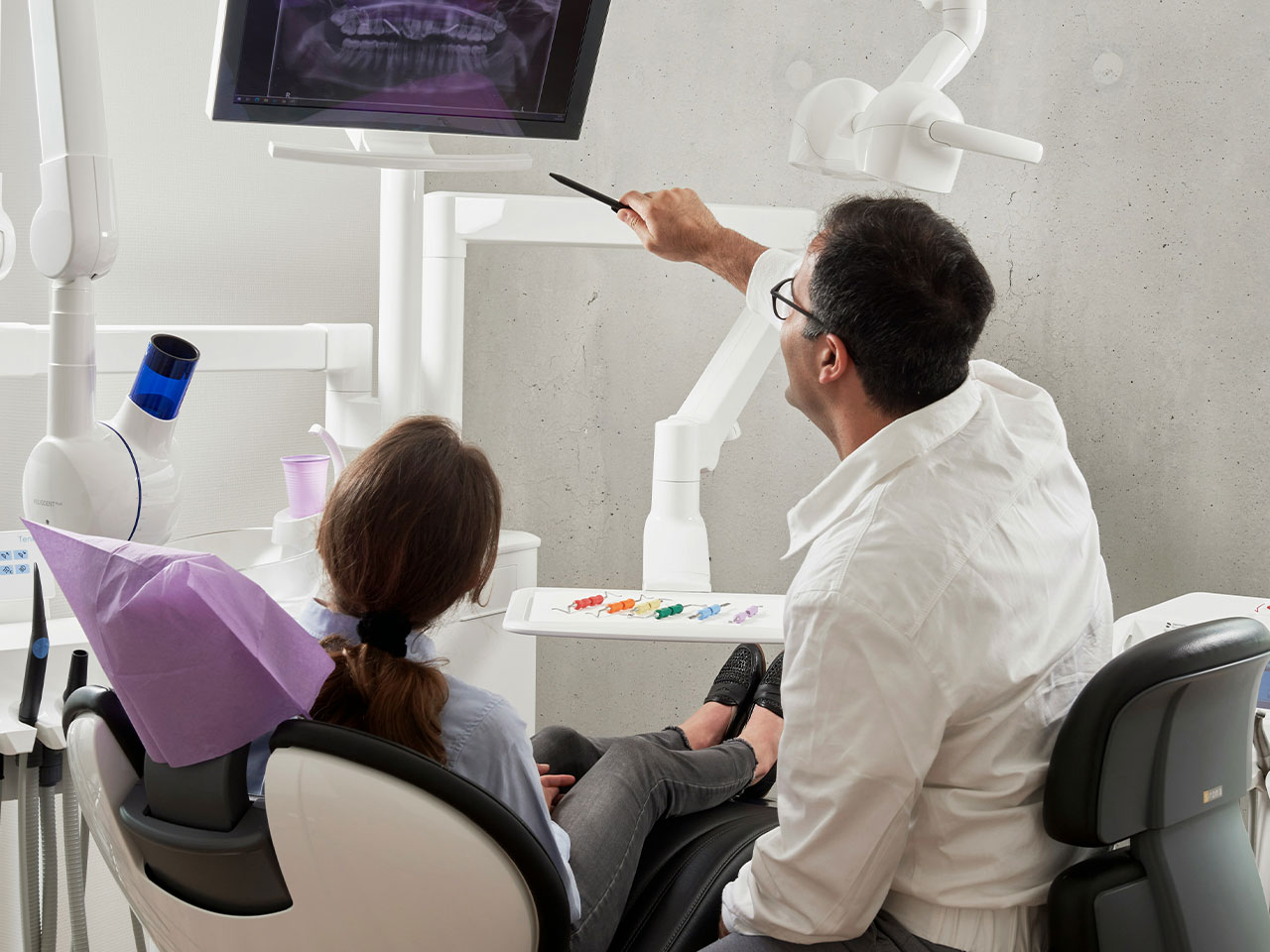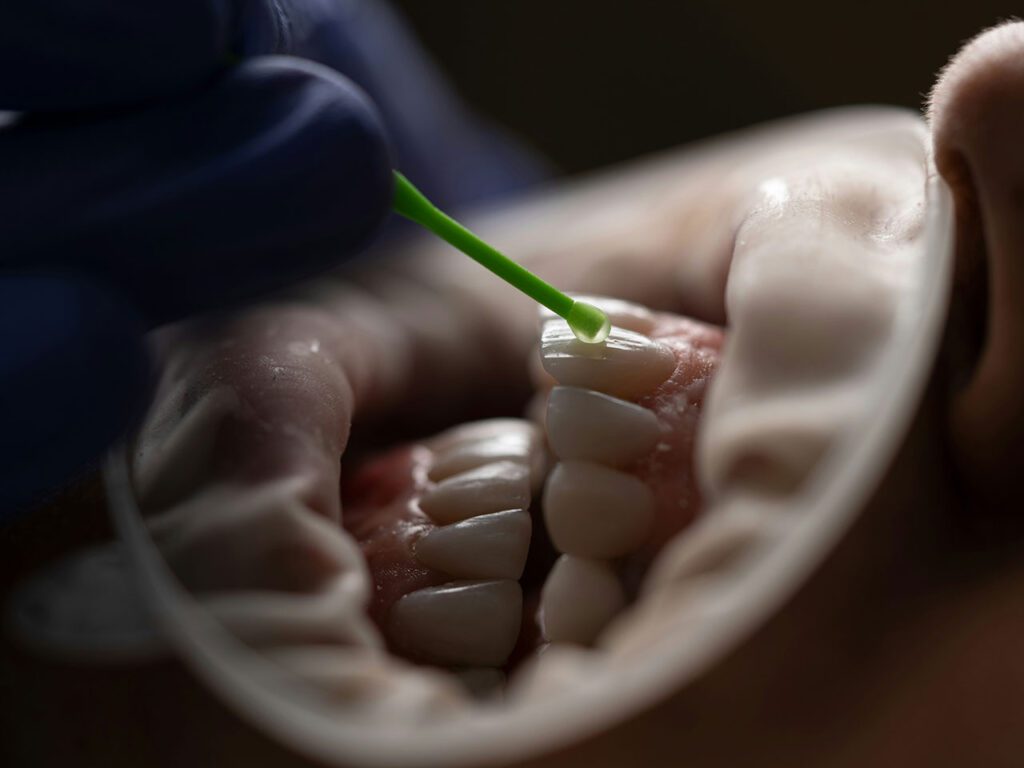
How to Spot Early Signs of Oral Health Problems Before They Get Worse
Most people only visit the dentist when something feels wrong, like a sharp pain or a broken tooth. What many don’t realise is that by the time symptoms become noticeable, the underlying problem may already be advanced.
Just like with many health conditions, the early signs of oral health issues are often subtle and easy to ignore. However, catching them early can make all the difference when it comes to treatment, cost and long-term dental health.
Keep reading to explore the common early warning signs of dental problems and explain why routine checkups are essential, even if your teeth and gums seem perfectly fine.
Why Do Check-Ups Matter?
Regular dental checkups help identify small problems before they turn into painful or costly issues. For example, a small cavity detected early can be filled in one appointment. If left untreated, it could develop into an infection that requires a root canal or even extraction.
More importantly, some dental problems, such as gum disease or oral cancer, can develop without any immediate pain or discomfort. Routine checkups allow your dentist to spot these conditions in their early stages, when treatment is more effective and less invasive.
Common Early Warning Signs of Oral Health Issues
Even if your teeth seem healthy, be on the lookout for the following subtle signs that could indicate an underlying issue.
- Bleeding Gums.
Gums that bleed during brushing or flossing are often dismissed as nothing serious. However, this is one of the earliest signs of gingivitis, the first stage of gum disease. If left untreated, it can progress to periodontitis, which may lead to tooth loss. - Bad Breath That Won’t Go Away.
Occasional bad breath is normal, especially after strong-smelling food. However, if it’s persistent, it could be caused by plaque build-up, gum disease or even a hidden infection. Dentists can identify the root cause and recommend the right treatment. - Tooth Sensitivity.
Do your teeth hurt when you drink hot tea or eat ice cream? Tooth sensitivity can be a sign of enamel erosion, receding gums or even early tooth decay. Identifying the cause early can prevent further damage. - Receding Gums.
If your teeth are looking longer than they used to, you may be experiencing gum recession. This can expose the tooth roots and increase the risk of decay and sensitivity. Gum recession is also an early sign of gum disease. - Discolouration or White Spots.
Changes in tooth colour or white spots may be signs of demineralisation, which can lead to cavities. These changes are often not visible unless your dentist uses special tools during a checkup. - Jaw Pain or Clicking.
Pain when chewing, jaw stiffness or clicking sounds can indicate TMJ (temporomandibular joint) disorder or teeth grinding. Both conditions can lead to long-term damage if not managed early. - Sores or Patches in the Mouth.
Mouth ulcers that don’t heal within two weeks, red or white patches, or unusual lumps should always be checked by a dentist. These could be signs of irritation, infection and in rare cases, early signs of oral cancer.

Why Should I Book Routine Check-Ups?
Many people believe that if they are not in pain, their oral health must be fine but this is a common and risky misconception.
Here’s why regular dental visits are essential, even if your teeth and gums seem healthy:
- Detecting Problems Early
Dentists can identify the earliest signs of decay, gum disease or oral cancer before they cause symptoms. Early treatment is more effective and affordable. - Professional Cleaning
Even with excellent brushing and flossing habits, plaque can build up in hard-to-reach areas. Professional cleaning removes tartar and helps prevent gum disease. - Oral Cancer Screening
During a routine checkup, your dentist will look for signs of oral cancer. This is especially important as oral cancer is often symptom-free in the early stages but treatable if caught early. - Monitoring for Changes
Your dental health can change over time. Regular visits allow your dentist to track any changes in your gums, teeth, bite and jaw so they can take action when something seems off. - Personalised Advice
Dentists can offer tailored guidance on brushing, flossing and diet to help you improve your day-to-day oral hygiene and prevent future problems.
How Often Should I Visit the Dentist?
For most people in the UK, it is recommended to visit the dentist at least once every six months. However, your dentist may suggest more or less frequent visits depending on your risk factors such as smoking, diabetes, gum disease or a history of dental problems.
Routine checkups are usually quick, pain-free. Having them regularly is far less costly than emergency dental care or major treatments.
Book Your Checkup Today
At Staina House Dental Practice, we believe prevention is the best medicine. Our friendly, experienced team offers thorough checkups and personalised advice to help you maintain excellent oral health. Whether it has been six months or six years since your last visit, we’re here to help with no judgment and no pressure.
Contact us today and take the first step towards better oral health. Your smile will thank you.


